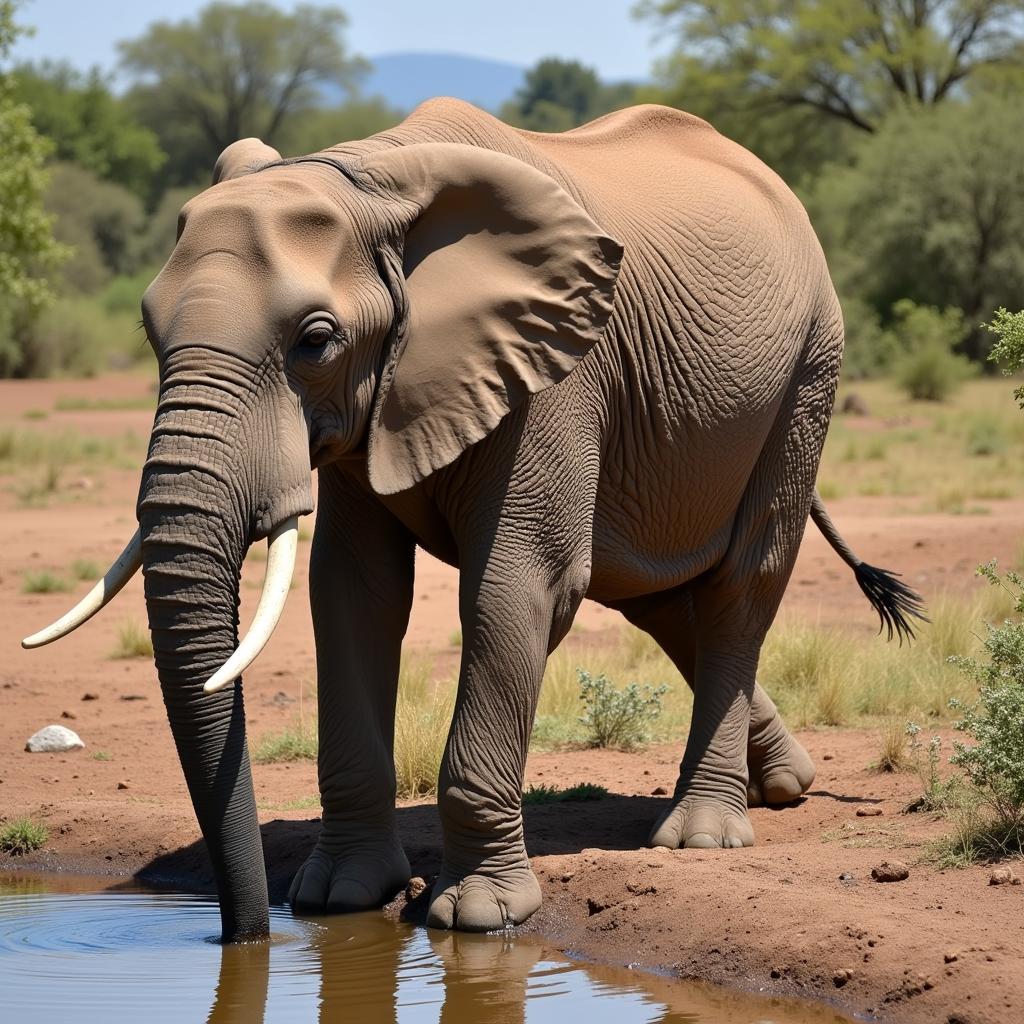Unveiling the African Amazon Fire: Myths and Realities
The term “African Amazon Fire” often sparks curiosity, conjuring images of vast, burning rainforests akin to the Amazon. However, this analogy, while sometimes used to highlight the importance of African forests, can be misleading. Africa’s fire regimes are complex and diverse, differing significantly from the Amazon. This article delves into the realities of fire in Africa, exploring its ecological role, its impact on local communities, and the challenges of managing it effectively.
Understanding Fire in the African Landscape
Fire is an integral part of many African ecosystems, shaping the landscape for millennia. From the savannas of East Africa to the Miombo woodlands of Southern Africa, fire influences vegetation patterns, nutrient cycling, and wildlife habitats. Unlike the Amazon, where fire is largely considered a destructive force, many African plant species have adapted to and even depend on regular burning for regeneration and survival.
After this initial comparison, it’s crucial to delve into the specifics of African fire regimes. These vary considerably across the continent, influenced by factors such as climate, vegetation type, and human activities. For instance, the dry savannas experience frequent, high-intensity fires, while the more humid forests experience less frequent, lower-intensity fires. Understanding these nuances is essential for effective fire management. You can learn more about how different landscapes shape the African forest at African Forest Landscape.
The Human Element: Traditional Fire Practices and Modern Challenges
For centuries, African communities have used fire as a tool for land management, hunting, and agriculture. Traditional burning practices, often carefully controlled and timed, have played a crucial role in maintaining biodiversity and ecosystem health. However, with increasing population pressures and changing land use patterns, fire regimes are being altered, leading to more frequent and intense wildfires. These uncontrolled fires pose a significant threat to biodiversity, human livelihoods, and even contribute to climate change. The African kitchen often relies on fire for cooking, adding another layer to the human relationship with fire on the continent. You can explore this further at African Kitchen.
Comparing African and Amazonian Fire Regimes: Key Differences
While both continents experience fire, the scale, frequency, and ecological impacts differ significantly. The Amazon rainforest, with its dense vegetation and humid climate, is much more vulnerable to large-scale fires than many African ecosystems. Comparing the African forest to the Amazon forest provides valuable insights into these differences, which you can find in more detail at African forest vs Amazon forest. Furthermore, understanding the unique characteristics of African climates, forests, and wildlife resources is essential for a comprehensive perspective on the role of fire, which you can explore at African climate and forest and wildlife resources.
Managing Fire in Africa: A Balancing Act
Managing fire in Africa requires a nuanced approach that recognizes both its ecological benefits and its potential dangers. This involves integrating traditional knowledge with scientific research, developing effective fire prevention and suppression strategies, and promoting sustainable land management practices.
What are the effects of fire on African wildlife?
Fire can have both positive and negative impacts on African wildlife. While some species benefit from the new growth that emerges after a fire, others may lose their habitat or become more vulnerable to predators.
How can we support sustainable fire management in Africa?
Supporting community-based fire management programs, promoting sustainable land use practices, and investing in fire monitoring and research are crucial steps.
Dr. Asani Mwamba, a renowned ecologist specializing in African savanna ecosystems, explains, “Fire is a double-edged sword. While it’s a natural part of the ecosystem, uncontrolled fires pose a serious threat. Sustainable management requires a deep understanding of local conditions and the involvement of local communities.”
Conclusion
The concept of “African Amazon fire” requires careful consideration. While highlighting the importance of fire in African ecosystems, it’s crucial to recognize the distinct characteristics of African fire regimes. Understanding the complex interplay of ecological, social, and economic factors is essential for developing effective fire management strategies that protect biodiversity, support livelihoods, and ensure the long-term health of African landscapes. Learning more about this dynamic is vital for appreciating the intricate relationship between fire and the African environment.
FAQ
- Is all fire in Africa bad? No, fire plays a natural role in many African ecosystems.
- How does fire affect African communities? Fire can impact agriculture, livelihoods, and human health.
- What is being done to manage fire in Africa? Various initiatives focus on integrating traditional knowledge and scientific approaches.
- How does climate change impact fire regimes in Africa? Climate change can increase the frequency and intensity of wildfires.
- How can I learn more about African fire management? Numerous resources are available online and through academic institutions.
- What is the role of traditional knowledge in fire management? Traditional knowledge provides valuable insights into sustainable fire practices.
- How can individuals contribute to fire management efforts in Africa? Supporting organizations working on fire management and promoting sustainable practices can make a difference.
Common Scenarios and Questions:
-
Scenario: A farmer in a savanna region wants to know how to use fire safely to clear land for agriculture.
-
Question: What are the best practices for controlled burning in this ecosystem?
-
Scenario: A conservationist is concerned about the increasing frequency of wildfires in a protected area.
-
Question: What strategies can be implemented to prevent and mitigate wildfires?
Related articles:
For further reading, you might be interested in exploring topics such as “The Impact of Climate Change on African Ecosystems” or “Traditional Land Management Practices in Africa”.
Need Help?
For any inquiries or assistance, please don’t hesitate to contact us.
Phone: +255768904061
Email: kaka.mag@gmail.com
Address: Mbarali DC Mawindi, Kangaga, Tanzania.
We have a dedicated customer support team available 24/7.



